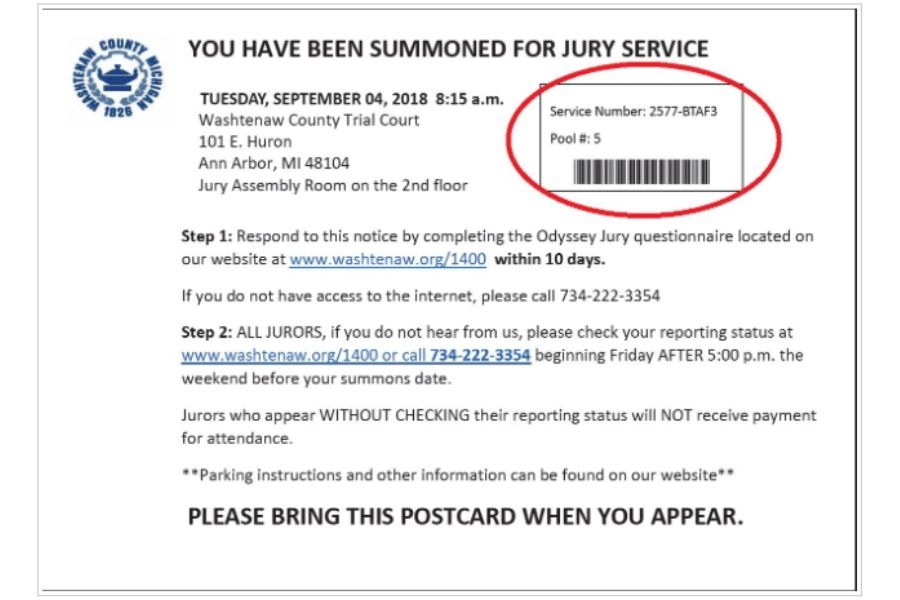
Michigan PTO Laws
Key Takeaways
- Michigan PTO Laws require Sick Leave, Maternity Leave, Jury Duty Leave, and Military Leave. Other optional leaves, such as Holiday Leave, should be provided in accordance with company policies and regulations.
- Employees may take up to 12 weeks of leave without pay for Sick Leave. Jury Duty Leave is unpaid but is compensated by the courts at a rate of $12.50/day. Review PTO Laws in Michigan, including rollover and payout, to ensure a fair workplace.
Understand PTO Work In Michigan
Michigan PTO commonly includes mandatory leaves like Sick Leave, Maternity Leave, Military Leave, and Jury Duty Leave.
Other leaves of absence, like Holiday, Bereavement, and Voting Leave, are managed and administered by the employer. They must conform to associated statutes, and the wording of company policies or contracts of employment should be consistent for all full-time and part-time employees. Company-offered PTO can vary between full-time and part-time.

Like Michigan PTO Laws 2023, Michigan PTO Laws 2024 require Maternity Leave.
Accrual systems, rollover policies, and the type of payment for accrued but unused vacation time at termination are typically based on an employer-employee agreement. The following sections provide detailed explanations of these regulations.
Michigan PTO Laws 2024
Sick Leave
The Michigan Paid Medical Leave Act (MPMLA) requires that paid sick leave be provided to part-time, full-time, and temporary employees of an employer with 50 or more employees. An employee shall be entitled if they work an average of 25 hours per week or a minimum of 1,250 hours during the last calendar year.
It grants 12 weeks of unpaid leave due to personal injury or illness, family sickness, domestic violence-, stalking-, or sexual assault-related problems. Workers shall earn one hour of paid sick leave for every 35 hours worked, with a maximum accrual of 40 hours per calendar year.

Employers can require reasonable notice of foreseeable sick leave and documentation for absences lasting more than three consecutive days.
Maternity and Paternity Leave
Maternity and paternity leave is designed for the new mother when giving birth or adopting a child.
According to the federal Family and Medical Leave Act (FMLA), it is mandatory for companies with 50 or more employees within a radius of 75 miles to grant Maternity and Paternity Leave to an employee who has worked for at least 12 months and 1,250 hours in the previous year.
Moreover, eligibility can get up to 12 weeks of unpaid leaves, job-protected, within 12 months for the case of birth or adoption of a child. In addition, employees are protected from such discrimination in childbirth and rearing of children, and they return to work according to the Pregnancy Discrimination Act (PDA) and the Michigan Civil Rights Act.
Military Leave
Military leave refers to an absence from work as a result of military service.
Any employee who is a member of any reserve unit of any branch of the military shall be entitled to military leave without pay with continuous full seniority, providing the military service is less than five years, the employee is not disqualified, and the employee returns at the end of such service in a timely manner.
Leave shall be granted in every case of deployment or military training. The length of leaves shall be determined by scheduled duty.
Jury Duty Leave
Jury duty leave means an absence from work to serve as a jurist in court. An employer, therefore, must provide this leave to employees as job-protected, unpaid leave. The law requires that the employee, in turn, present their summons to jury duty in order for them to get time off from their employer.

Example of Summons to a Jury
Businesses cannot request employees to work overtime when the combined hours and jury duty are more than the regular hours. Moreover, employers are not allowed to terminate, threaten, exemplary, or otherwise discipline the employee for attending jury duty.
While Michigan PTO payout laws do not require businesses to pay employees during time off work to serve on jury duty, courts and judges must pay jurors a fee of $12.50 per day and mileage compensation.
Bereavement Leave
Bereavement (Funeral) Leave is a leave of absence from work due to the death of a loved one.
Michigan law does not mandate businesses to offer bereavement leave. However, most companies have compassionate policies that address the number of days off permitted and whether the leave shall be paid or unpaid. Once an employer establishes such a policy through its employment contract, it must abide by that policy.
Voting Time Leave
Voting Time Leave refers to leave from work in order to vote.
Michigan does not require its employers to provide their employees with time off to vote or require them to pay employees for the voting time. This, in turn, enables the firms to come up with their own rules for giving time off for voting to allow workers who do not have adequate time outside working hours to vote.
Holiday Leave
Holiday Leave is taken off work to observe public holidays, like New Year’s Day and Thanksgiving.
PTO laws in Michigan do not require an employer to offer employees holiday leave; therefore, private employers can provide paid or unpaid holiday time off. Many employers permit time off on observed holidays.
There are 14 state holidays in Michigan. If holidays fall on Saturday, they are taken on the Friday before, while those on Sundays are taken on the following Monday.
| Holidays | Date in 2024 | General Date |
| New Year’s Day 2024 | Monday, Jan. 1 | January 1 |
| Martin Luther King, Jr. | Monday, Jan. 15 | 3rd Monday in January |
| Washington’s Birthday | Monday, Feb. 19 | 3rd Monday in February |
| Memorial Day | Monday, May 27 | Last Monday in May |
| Juneteenth | Wednesday, Jun. 19 | June 19 |
| Independence Day | Thursday, Jul. 4 | July 4 |
| Labor Day | Monday, Sep. 2 | 1st Monday in September |
| General Election Day | Tuesday, Nov. 5 | November 2 to 8 |
| Veterans Day | Monday, Nov. 11 | November 11 |
| Thanksgiving Day | Thursday, Nov. 28 | 4th Thursday of November |
| Thanksgiving Friday | Friday, Nov. 29 | Day after Thanksgiving |
| Christmas Eve | Tuesday, Dec. 24 | December 24 |
| Christmas Day | Wednesday, Dec. 25 | December 25 |
| New Year’s Eve 2025 | Tuesday, Dec. 31 | December 31 |
List of holidays
Emergency Response Leave
Emergency Response Leave is an off-leave from work that is allowed to employees only for work in response teams in cases of force majeure, like natural disasters or crises.
Employers must provide emergency response leave to protect the jobs of employees who volunteer as emergency responders, including state civil service members and certified American Red Cross volunteers. This leave allows them to respond to disasters and emergencies without fear of job loss.

Eligibility for Emergency Response Leave arises during times of disaster and other emergencies.
Whether the leave is paid or unpaid depends on the company’s policies or directives from the governor or the civil service commission.
Does the PTO Law in Michigan Permit the “Use It or Lose It”?
Yes. Michigan law explicitly permits employers to adopt a “use-it-or-lose-it” policy, under which they may decline to permit PTO accrual use in the next year.
Additionally, payment for accrued but unused vacation time upon the end of employment is only required when company policy or employment agreement promises such payment.
How Much Paid Time Off May Employees Rollover or Carry-Over under Michigan PTO Law?
Michigan allows for a “use-it-or-lose-it” policy, under which employers could require workers to use paid time off within the calendar year or simply lose it.
But then it has its own rules for leaves on the grounds of sickness. It categorically states that under the Michigan Paid Medical Leave Act, workers are entitled to carry 40 hours of unused sick leave from 1 year to the next.
On the other hand, employers are also entitled to frontload 40 hours of sick leave at the start of the benefit year, which will remove rollover at the end of the year.
Under Michigan PTO Law, is an Employer Required to Pay Unused, Accrued Vacation upon Termination?
No. Michigan law does not require this payment upon termination. The employer’s policy controls this issue entirely.
Employers are not required to pay accrued but unused PTO at the end of employment unless their policy or contract of employment requires it. If they have a policy requiring payment, they must follow it. Otherwise, the default rule might give employees a right to pay for accrued vacation upon termination.
May Employers Refuse to Pay for Accrued Vacation upon Separation?
Yes. Under Michigan state law, the employer can have policies that accrued leave does not have to be paid at termination, but only if that policy had been reduced to writing. It specified the conditions under which such a payment could be withheld.
Such conditions could apply, including the employee not giving the appropriate notice of leaving or being unemployed on a particular date. Still, it should be an agreed term in the contract.

In case of termination, the employers and employees must mutually agree on whether accrued leave will be paid.
For example, an employer could implement a policy allowing workers to receive a leave payout if they are actively working on December 31. If the employee left or was terminated before December 31, the employer could withhold payment of funds for leave not taken.
How Can a Multinational Employer Comply with Michigan Paid Time Off Laws?
ERA’s Employer of Record (EOR) services can help global businesses simplify Michigan compliance efforts and other expansion processes.
ERA takes the complexity out of going global and managing the recruitment, payroll, tax, and benefits of client companies’ workforce. This approach allows companies to hire employees properly in more than 100 countries without maintaining their own local entity or managing all the associated compliance. Contact us to explore how our tailored staffing solutions can drive global growth!
Ms. Tracy has worked in human resource consulting for over 15 years. A driven entrepreneur focused on business expansion and people development. She previously worked as Country Manager for an international Australia firm that specializes in global workforce management, as well as several key roles as Business Growth Director and Executive Search Director for both large local firms to effectively drive their business growth. A strong emphasis is placed on aligning organizational priorities/objectives with business needs. She has a large network of local business leaders and a thorough understanding of the local market.









